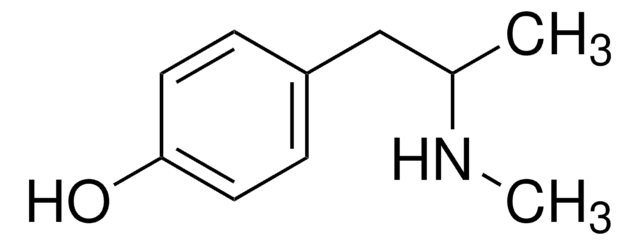M1796
(±)-3,4-Methylenedioxy-N-ethylamphetamine hydrochloride
≥98% (TLC)
Synonym(s):
MDEA hydrochloride, N-Ethyl-3,4-MDA hydrochloride
About This Item
Recommended Products
Quality Level
Assay
≥98% (TLC)
drug control
USDEA Schedule I; Home Office Schedule 1; stupéfiant (France); kontrollierte Droge in Deutschland; regulated under CDSA - not available from Sigma-Aldrich Canada; psicótropo (Spain); Decreto Lei 15/93: Tabela IA (Portugal)
SMILES string
Cl[H].NCCc1ccc2OCOc2c1
InChI
1S/C12H17NO2.ClH/c1-3-13-9(2)6-10-4-5-11-12(7-10)15-8-14-11;/h4-5,7,9,13H,3,6,8H2,1-2H3;1H
InChI key
IBDIPBWIXJRJQM-UHFFFAOYSA-N
Biochem/physiol Actions
Other Notes
Signal Word
Danger
Hazard Statements
Precautionary Statements
Hazard Classifications
Acute Tox. 3 Oral - STOT SE 3
Target Organs
Respiratory system
Storage Class Code
6.1C - Combustible acute toxic Cat.3 / toxic compounds or compounds which causing chronic effects
WGK
WGK 2
Flash Point(F)
Not applicable
Flash Point(C)
Not applicable
Personal Protective Equipment
Certificates of Analysis (COA)
Search for Certificates of Analysis (COA) by entering the products Lot/Batch Number. Lot and Batch Numbers can be found on a product’s label following the words ‘Lot’ or ‘Batch’.
Already Own This Product?
Find documentation for the products that you have recently purchased in the Document Library.
Our team of scientists has experience in all areas of research including Life Science, Material Science, Chemical Synthesis, Chromatography, Analytical and many others.
Contact Technical Service









